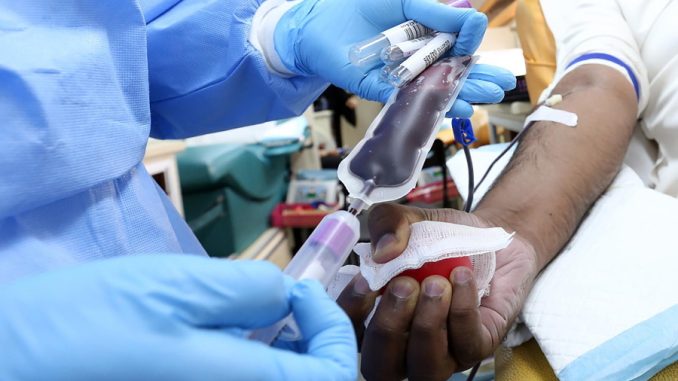
bluebird bio’s Zynteglo has become the first cell-based gene therapy to be approved in the US, getting the nod from the FDA as a treatment for patients with beta thalassaemia who require regular blood transfusions.
The US approval comes three years after Zynteglo (betibeglogene autotemcel) was approved for the same indication in Europe, and subsequently withdrawn after bluebird concluded that it wasn’t possible to build a commercially viable business for the gene therapy as the pricing and reimbursement environment there was too “hostile.”
The gene therapy specialist’s chief executive Andrew Obenshain said the approval “marks a watershed moment for the field of gene therapy” and is “ushering in a new era in which gene therapy has the potential to transform existing treatment paradigms for diseases that currently carry a lifelong burden of care.”
In clinical trials of the gene therapy, 89% of 41 patients remained free of the need for blood transfusions after a median of 42 months’ follow-up. An FDA advisory committee recommended approval of Zynteglo on the strength of that data in June.
Zynteglo is a customised, one-time treatment created using a patient’s own bone marrow stem cells hat are genetically modified to produce functional beta-globin, which is mutated in the disease.
bluebird has opted to launch it at a cost of $2.8 million, which compares to the $1.7 million price tag attached to the therapy when it was first made available in Europe, and is also well above the proposed $2.1 million level that cost-effectiveness organisation ICER said would be acceptable in a July report.
The company said it would give a treatment guarantee with the product, offering to reimburse health insurers up to 80% of the cost if Zynteglo stops working in the two years after it is administered. That payback option was also factored into the ICER review, though notably over a five-year period.
Offsetting the cost of the therapy is the lifetime cost of transfusion-dependant thalassaemia, which in a recent study was estimated to be $5.4 million, spit between $1.6 million for the transfusions themselves and $3.7 million for chelation therapy to remove excess iron from the body.
There is a lot riding on the commercial success of Zynteglo, as bluebird revealed earlier this year that its future as an ongoing business was uncertain unless it can raise additional financing.
If this bluebird beta-thal launch is (hopefully) successful, it will be one of the clearest case studies of the United States being the underwriter of medical innovation for the world. The entire gene Tx field is watching.
— Brad Loncar (@bradloncar) August 17, 2022
It slashed its workforce by 30% to reduce cash burn and extend its funded operations into the first half of 2023, so investors will be looking for signs of take-up of Zynteglo in the coming months. It is estimated there are around 1,500 people in the US who could be eligible for treatment with the therapy.
bluebird also gets a priority review voucher from the FDA as a result of the approval, which could also bolster its finances as they can be worth $100 million or more if sold on to other companies.
In a statement, the FDA said that there is a hypothetical risk of blood cancer associated with Zynteglo – noting however that no cases have been seen in clinical studies of the therapy – so patients should have their blood monitored for at least 15 years for any evidence of cancer.
They should also be monitored for low platelet counts and bleeding episodes, as these are some of the common adverse events seen with Zynteglo therapy.
With the Zynteglo approval in the bag, eyes now turn to bluebird’s second gene therapy candidate elivaldogene autotemcel (eli-cel) for cerebral adrenoleukodystrophy (CALD), which has also been recommended for approval and is due for an FDA decision by 16 September.
Image by Ahmad Ardity from Pixabay
The post Bluebird unveils $2.8m price for gene therapy Zynteglo on FDA approval appeared first on .